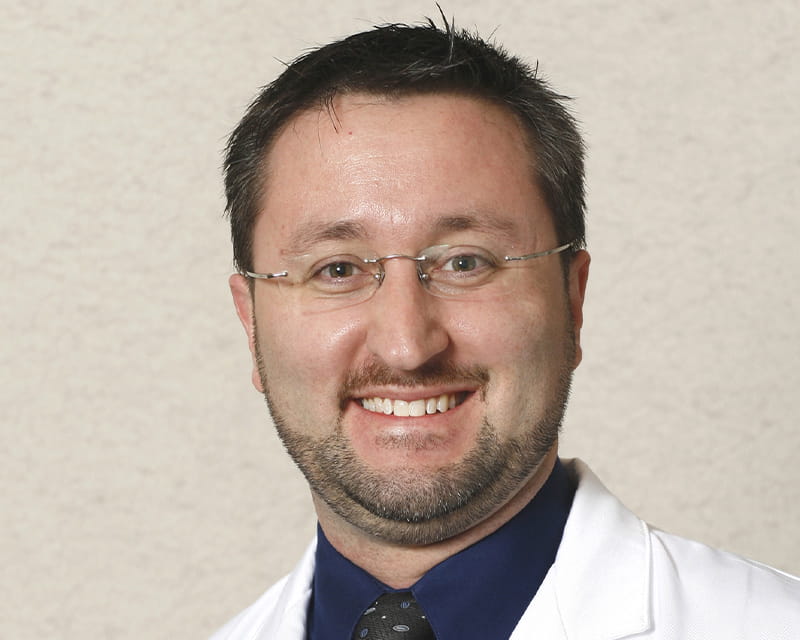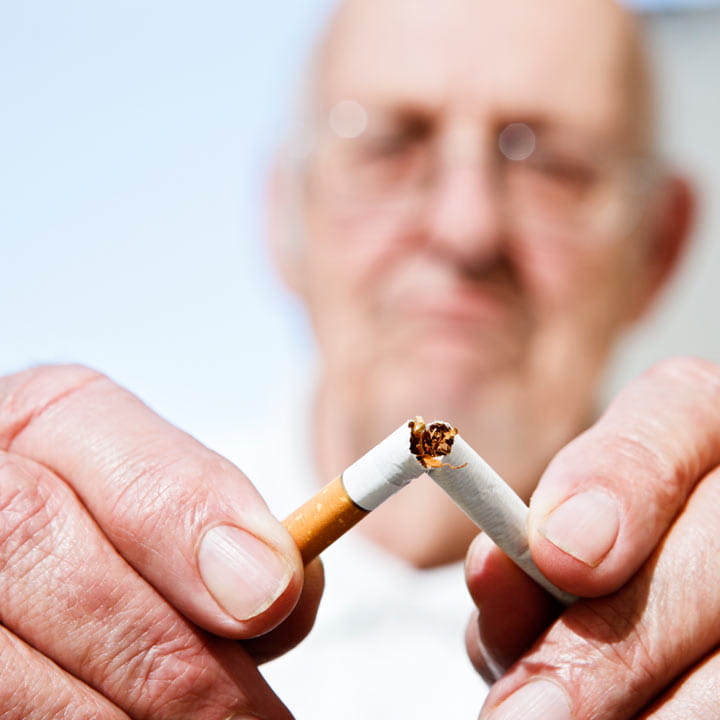
Robotic-assisted surgery with intraoperative radiation offers new hope to patients with local cancer recurrence
 It’s a well-established fact that patients undergoing major urologic surgery have an increased risk of complications if they smoke. But when research he was involved with suggested that even smokers undergoing traditionally low-risk surgeries had an increased risk of wound and pulmonary complications compared to nonsmokers, urologist John DeLancey, MD, assistant professor in the Department of Urology at The Ohio State University College of Medicine, got to thinking. How could doctors better counsel patients having urologic surgery about the importance of smoking cessation before their operation?
It’s a well-established fact that patients undergoing major urologic surgery have an increased risk of complications if they smoke. But when research he was involved with suggested that even smokers undergoing traditionally low-risk surgeries had an increased risk of wound and pulmonary complications compared to nonsmokers, urologist John DeLancey, MD, assistant professor in the Department of Urology at The Ohio State University College of Medicine, got to thinking. How could doctors better counsel patients having urologic surgery about the importance of smoking cessation before their operation?
The answer to that question has resulted in a pilot program expected to launch in summer 2023. The program is a joint venture between Dr. DeLancey, a member of the Cancer Control Program at The Ohio State University Comprehensive Cancer Center – Arthur G. James Cancer Hospital and Richard J. Solove Research Institute and noted tobacco control researcher Amy Ferketich, PhD. Dr. Ferketich is interim co-chair of the Division of Epidemiology at The Ohio State University College of Public Health and also a member of the Cancer Control Program. Their smoking cessation program will comprise a team of staff reaching out to all adults scheduled for elective urologic surgery at The Ohio State University Wexner Medical Center. It’s designed to explain the rationale for smoking cessation and offer resources that may help.
“Surgery is one of those teachable moments,” Dr. Ferketich says. “People tend to be more receptive to changing their behavior if it can impact their outcome.”
Most physicians try to talk with their patients about quitting smoking before surgery. But with limited appointment time, that isn’t always easy.
“There’s so much that goes on in that preoperative period that a lot of patients may not get the counseling that they need,” Dr. DeLancey says. The planned smoking cessation intervention is intended to keep patients from falling through the cracks.
“Physicians are asked to do so much; nurses are asked to do so much,” Dr. Ferketich says. “If we can take that counseling off their hands, I think it could be potentially impactful.”
Under the program, a specially trained staff member will call smokers shortly after they’re scheduled for urologic surgery. The staff member will explain the benefits of tobacco cessation, particularly before surgery, and offer an overview of evidence-based resources available to help them, such as:
“Different people are going to be attracted to different programs,” Dr. Ferketich says. And that’s an important aspect of this program. While previous research has looked at the effectiveness of specific smoking cessation interventions, Dr. Ferketich and Dr. DeLancey will look at the impact choice has for patients.
“One of the goals of this project is to be adaptive,” Dr. DeLancey says. “We want to provide a menu to patients, see what might work for them and see if that might improve their willingness to quit.”
“The clinical guidelines recommend a combination of counseling and pharmacotherapy,” Dr. Ferketich says. “And these resources offer both. That’s best practice. Counseling affects the behavioral aspects of addiction, and pharmacotherapy addresses the physiological aspects.”
The sooner patients quit smoking before surgery, the better.
“The best data that we have says that if you can quit four weeks before surgery, that’s where you get the maximum benefit in terms of reducing the risk of complications,” Dr. DeLancey says.
But time periods before elective surgery can vary widely, and Drs. DeLancey and Ferketich hope to take advantage of whatever time is available to encourage patients to kick their smoking behavior, however short it may be.
“There’s some evidence that even not smoking the day of surgery can have an impact on improving wound complications,” Dr. DeLancey says.
The research team will speak with patients prior to their surgery, on the day of surgery and at a later time. Specifically, they’ll be investigating:
Because urologic surgery runs the gamut from minor endoscopic procedures to major open operations, Dr. DeLancey believes it provides a good opportunity to see if a program like this can work with a variety of patients. If it does, the hope is to expand it to patients undergoing other types of surgery. Designed to be low-tech and scalable, it’s easily adaptable in other settings, such as community hospitals and private practices.
What’s most important about helping patients quit smoking is that the benefits to their health extend beyond their recovery from surgery.
“A lot of the things that we do are completely elective procedures,” Dr. DeLancey says. “If we’re able to convince patients to quit smoking, that may be even more beneficial, in some cases, than doing the procedure they want to have done.”